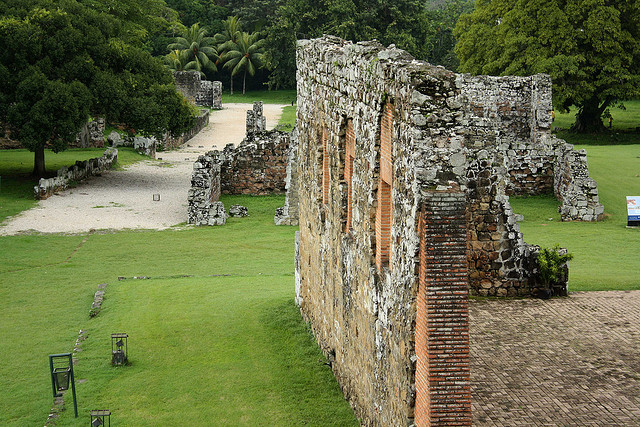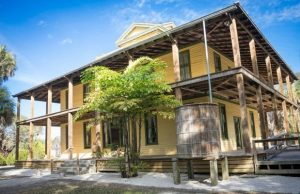The Expat Guide to Panama City

Bernal Saborio
It’s no accident that Panama City, Panama, has become a top expat destination for people from all over the world. Just look at what the city has to offer:
- balmy climate
- clean drinking water
- stable government
- first world amenities
- reasonable cost of living
- high quality medical care
- rich cultural experiences
- quick access to rainforest, beaches, and mountains
Panama City is close enough to the U.S. to make travel into its Tocumen Airport a quick jaunt from Miami, and yet it’s also an easy gateway to further travel in Central and South America. If you want glamorous, big city life, you can have it there, but you can also connect with local people from indigenous cultures who can show you a simpler manner of living.
Either way, you’ll have the best of both worlds in Panama City. Here’s our expat guide to Panama City to help you make the jump into one of the best places on earth to reboot your life.

Tannaz
Daily Life: What to Expect
Panama City has the highest per capita income in Central America. With high speed Internet, modern global banking, and currency in the U.S. dollar, you might think for a minute that you’re in a big U.S. metropolis.
But unemployment is higher in Panama City than in the States, so rather than counting on finding employment there, it’s best to have your income lined up before you go, whether that’s working remotely or starting a business there. Panama offers numerous perks for business investors in the tourism industry, including fewer duty restrictions and income and real estate tax exemptions.
Life is a little slower in Panama, so plan on things taking longer than you’d expect in the U.S., such as completing household repairs, ordering utilities, or filing government papers. That’s an aspect of Latin culture that’s pervasive in Central and South America. The upside is that life is savored in Panama, and you can count on people taking the time to enjoy food, company, and entertainment.
Be aware, though, that no one arrives on time for social events, so don’t fret if you’re waiting for friends at a restaurant or they’re not at your door on the stroke of the hour. Like in most Latin countries, it’s nice to bring your hosts a little gift if you’re invited to their home – something like wine or candy is always appreciated.
And if you learn at least a little Spanish, it will make life infinitely easier for you in both business and social settings and will go a long way in dispelling stereotypes about arrogant foreigners.

Geoff Gallice
Residency and Cost of Living
While it’s a tad more expensive than the countryside, Panama City affords expats a very reasonable cost of living. Although utilities fluctuate with the price of fuel, you won’t have any need for heat, nor will you want to use air conditioning very often (most places don’t have it).
Panama City has a warm, moist climate much of the year, with a dryer period from January to April, and the ocean breezes keep it pleasant most of the time. Many expats get by with just Internet and a mobile phone, so you can kiss your land line and fax machine goodbye.
A couple can get by on about $1,500-2,000 per month, with about half the monthly budget going towards rent. While you may be spending close to what you pay in the States for a house or apartment, you’ll get far more in terms of square footage, charm, building amenities, and gorgeous views. Of course, you can always purchase property there too. Buying a home in Panama, with the help of a local attorney, is fairly straightforward and free of restrictions.
One of the hallmarks of Panama City is its top-notch health care. At the most expensive hospitals, such as the Johns Hopkins-affiliated Punta Pacifica, you can expect to pay about half the U.S. cost of medical treatment. And many other excellent clinics provide service for considerably less.
There are many visa categories for foreigners who want to live in Panama, but if you can take advantage of the pensionado visa, you’ll definitely want to do so. Offered to those in good health with no criminal records and a minimum income of $1,000 per month, the pensionado allows you to import a car to Panama every two years, import your household goods with no duty, and pay discounted prices at movies, restaurants, hotels, and public transportation.

Tony Mendez
The Expat Guide to Panama City Residential Neighborhoods
Panama City is a city of neighborhoods, and they are all quite different. While you should stay away from El Chorrillo, Santa Ana, and Chinatown due to safety issues, there are a number of residential areas that many expats find quite pleasing.
Balboa, Cerro Ancon, and Albrook are all neighborhoods in the former canal zone, including a one-time U.S. Air Force base that is now used as a domestic airport. The view from the top of Cerro Ancon is stunning, with 360-degree vistas of the city and the canal.
Bella Vista, Area Bancaria (the financial district), and El Cangrejo form a compact spot that could be considered one upscale neighborhood. One of the few areas in Panama City that is easy to negotiate on foot, this locale makes it easy to walk to its plethora of shops and cafes. If you’re not putting up visitors in your home, they’ll love the lodging choices in El Cangrejo.
If it’s high-rise glamor you want, you’ll find it in Marbella, Punta Paitilla, and Punta Pacifica. There, steel and glass towers are interspersed with modern shopping malls, and the coastline location provides beautiful views.

Rodrigo Gambassi
Fun Activities Around the City
Casco Viejo is another popular neighborhood that mixes residences in classic centuries-old architecture with lively entertainment and tourist appeal. It is currently undergoing a major gentrification and is another neighborhood best experienced on foot. Some other popular attractions include:
- Panama Viejo – ruins of the old Panama City
- Amador Causeway – a malecon connecting four islands near the Pacific side of the canal filled with restaurants and tourist spots reminiscent of Miami
- Parque Natural Metropolitano – a fabulous nature park only ten minutes from downtown
- The Panama Canal – not just for tourists
- Mercado de Mariscos and Mercado Publico – the seafood and adjoining farmers markets
If sports are your thing, there is world-class baseball and horse racing in Panama City too, as well as bike rentals on the Causeway. Dance clubs, bars, and pubs abound, from the most casual to velvet rope glitzy. Shoppers can always find something to please at any of the city’s galleries and mega malls or the smaller centers for handicrafts. Avenida Central is full of colorful bargains with real local flavor.

gil2594
Getting Around Panama City
Driving in Panama City is a lot like driving in the U.S. as far as rules and regulations go, but the traffic is considerably more congested. If you must drive, be aggressive but watchful and ready to stop on a dime.
Watch out for pedestrians – there are a lot of jaywalkers in Panama City – and never leave valuables in your car. There are street or parking lot spots with guards who will watch over your car for a small fee. Keep your doors locked and always carry a map with you, not that it will necessarily do much good on many of the unnamed streets in the tangle of downtown.
Taxis are a better way to go, and they’re very inexpensive in Panama City. For about $2, you can get around downtown, and $5 will get you out to the Causeway. Even cabs can have a difficult time with the lack of formal addresses, so try to give them as much information as you can about your destination. Be sure to confirm your price ahead of time, and don’t be surprised if you pick up another passenger during peak rush hours or rainy days.
Living in Panama City can be fantastic for expats who want the modern comforts of the first world with the cultural experience and lower cost of Latin America. Panama City has an active and well-connected expat community that can advise you on common questions and help you assimilate smoothly into the local culture.
For more information about living in Panama, be sure to check out our other posts and feel free to ask questions–that’s what we’re here for! We love living in the Latin tropics, and we want you to also!
Map of Panama
Panama Fast Facts
- Population: 3.8 million
- Typical temperature: Temperature typically varies from 72°F to 91°F
- Nearest airport with U.S. flights: U.S. bound flights leave daily from Tocumen International Airport
- Nearest U.S. consulate: Panama City
Up Next

7 of the Top Places U.S. Expats Are Living in Latin America (and Why)

Central America's Best Real Estate Buy

The World’s Top 10 Best Places to Put Your Money

Nosara, Costa Rica Everything You Need to Know. I Mean Everything.
Imagine a small, beautiful beach town surrounded by jungle and wildlife with a peaceful multicultural community and many of the comforts of home. That place, named by National Geographic as one of the top surf …
(Read It)
Panama City, Panama Real Estate Market Update
Today we have a guest post written by Kent Davis, owner of one of the most successful real estate brokerages in Panama City The Panama City real estate market may have finally taken a turn in …
(Read It)
Top 133 Costa Rica Websites for Expats and Investors
Did you know there are dozens and dozens of great resources on Costa Rica for expats and investors? Sure, we have a ton of resources for Costa Rica on our site, and a whole bunch …
(Read It)
The Truth about Living in Costa Rica: The Good, the Bad, and the Muddy
It's easy to find tons of articles and information out there highlighting all the great benefits of living in Costa Rica. But it's also easy to read those blogs and marketing pieces and think, "Yeah, it …
(Read It)
Why Nosara, Costa Rica Is Not Your Average Surfing Town
A deeper look at Nosara and its history will quickly reveal that this long-time mecca for surfing enthusiasts offers so much more than just the sand and sea. The increasing interest in the area as a …
(Read It)
Expats Are Still Falling in Love with Nosara and Here’s Why
What was once the up-and-coming expat haven of Nosara, Costa Rica, has blossomed into one of Costa Rica's most established expat communities that continues to be ranked near the top of the list of most desirable destinations in the Latin …
(Read It)












